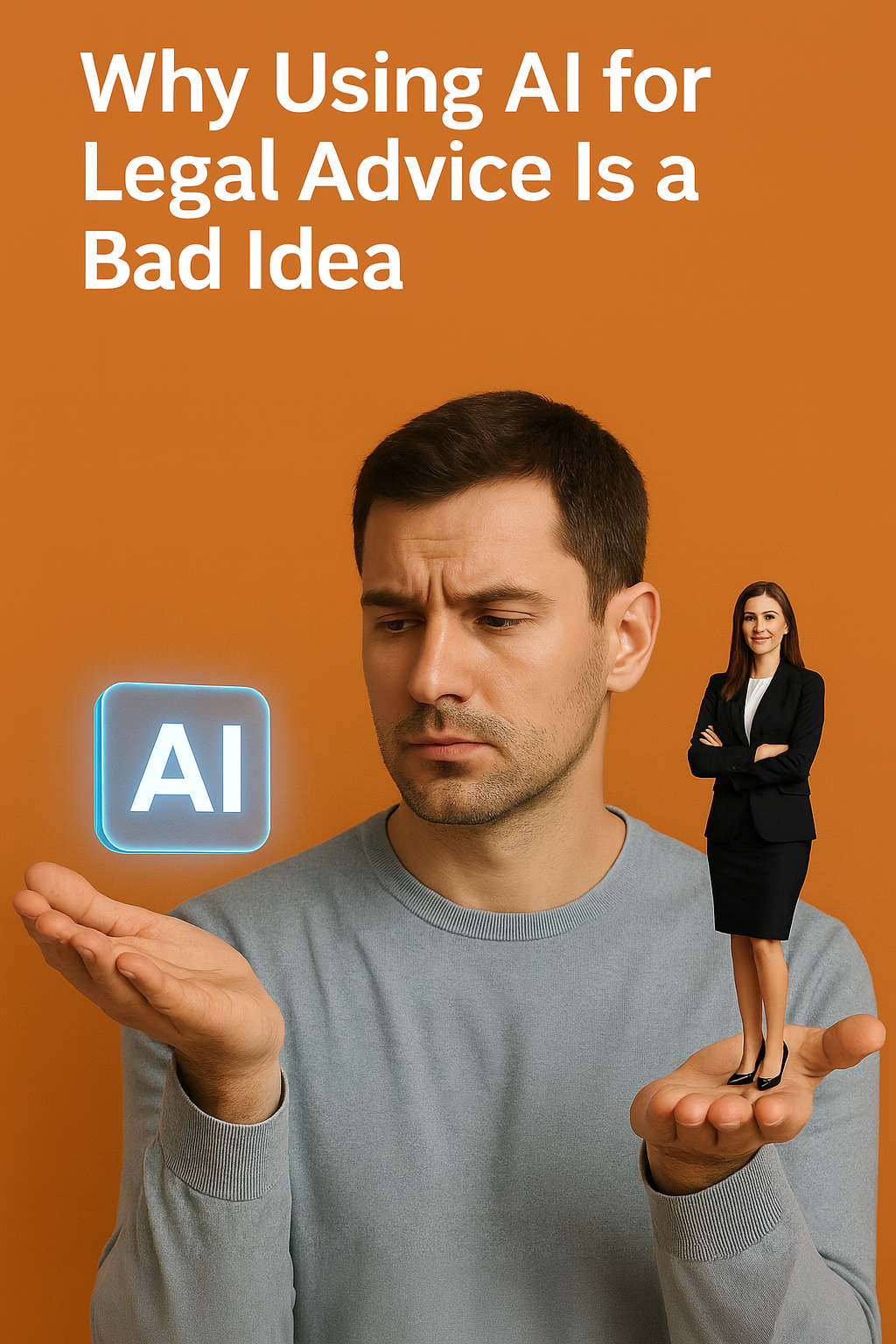On a recent episode of the Joe Rogan podcast, a guest summed up what many are quietly thinking: “I used to call my lawyer and pay a few hundred bucks just to get some quick advice. Now I just ask ChatGPT — and I save the money.”
At first glance, it sounds like a savvy, modern move. After all, AI gives instant answers, doesn’t charge by the hour, and never puts you on hold. But when it comes to legal issues, that tradeoff can be more expensive than you think.
The Difference Between Legal Information and Legal Advice
AI is trained to provide information. It doesn’t understand your unique circumstances, the local laws that apply to your case, or the human stakes behind your decision. That means it can sound convincing — even authoritative — while giving dangerously misleading answers.
Take this real-world cautionary tale: In 2023, a New York attorney used ChatGPT to help draft a legal brief. The result? The brief cited fictional cases that didn’t exist. The court sanctioned the lawyer, and the story made national headlines.
The problem wasn’t the tool — it was the trust placed in it to do a lawyer’s job.
Jurisdiction Matters (AI Doesn’t Know Where You Are)
Law isn’t one-size-fits-all. What’s legal in California might not be in Texas. What applies in federal court might be irrelevant in a local dispute. AI doesn’t always ask — or understand — where you are. That’s a recipe for relying on advice that simply doesn’t apply to your situation.
It’s like asking a general practitioner in another country whether you should have surgery. You’ll get some answer, but not the one you’d bet your life — or lawsuit — on.
AI Can’t Read Between the Lines
Good lawyers aren’t just interpreters of law — they’re strategists. They weigh your goals, gauge your risk tolerance, read the subtleties of an opposing party’s posture, and prepare for how things could unfold in court or negotiation. They tell you not just what could happen, but what’s likely to happen and how to prepare.
AI can’t do that. It can summarize a statute, but it can’t sense the nuances of your case. It can quote a precedent, but it won’t know how a particular judge has ruled on similar matters — or whether settling early would be smarter than fighting.
The Illusion of Certainty
Perhaps the most dangerous thing about relying on AI for legal advice is how confident it sounds. It doesn’t hedge. It doesn’t say, “I’d want to see the complaint first.” It doesn’t pause and ask clarifying questions. But good lawyers do.
And when AI gets it wrong — even slightly — the cost could be your business, your reputation, or your peace of mind.
Coming Up Next: How to Use AI the Right Way When You Have Legal Concerns
That doesn’t mean AI has no place in the legal process. Used correctly, it can be a powerful ally — a research tool, a thought organizer, even a translator of legalese. In our next post, we’ll show you how to use AI alongside your attorney to ask smarter questions, feel more confident in your consultations, and avoid surprises in the legal process.

